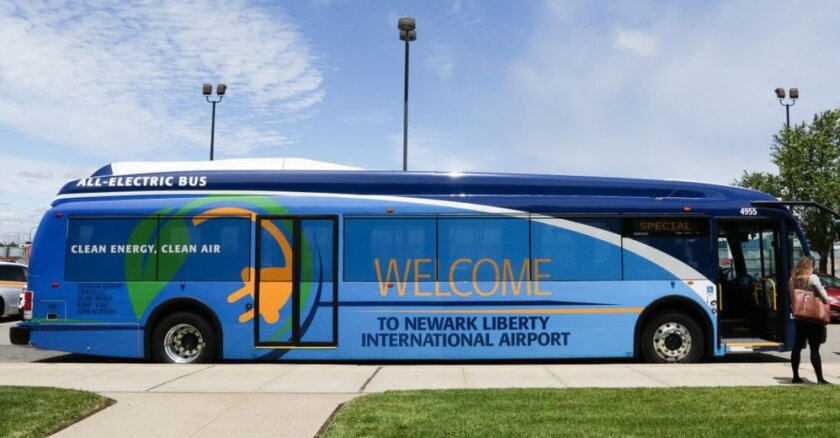NJ Transit’s board approved a $3.23 million contract with Scalfo Electric Inc. of Vineland Wednesday to build electric bus charging stations and the needed electric infrastructure at the Newton Avenue Bus garage in Camden.
That would allow the states first pilot program to start to test 8 electric transit busesin Camden. The results could determine if, and how they could be rolled out across the state. The only electric buses in use in the state now are Port Authority-owned buses at Newark Airport.
The bus garage power infrastructure has to potential to increase the number of vehicles served from 8 to 16 buses, said Eric Daleo, NJ Transit capital programs vice president, while the agency studies expansion and deploying more electric buses.
NJ Transit started four electric bus studies to electrify 20%, 50%, and 100% of the fleet at four garages - Newton Avenue in Camden, Hamilton, Hilton in Maplewood, and Greenville in Jersey City.
While electric buses were boasted as a step to meet Gov. Phil Murphy’s pollution reduction goals to have 100% of NJ Transits bus purchases be electrics by 2032, the agency’s planned $546 million Transit Grid power plant proposed on a 20-acre site in Kearny was criticized by opponents for potentially worsening state air quality.
Environmentalists and residents of nearby cities said the proposed power plant would worsen unhealthy air and respiratory health problems in nearby neighborhoods. It also violates Murphy’s executive order setting clean air goals, protesters said.
Opponents won a commitment from Transportation Commissioner Diane Guterrez-Scaccetti, NJ Transit’s board chairwoman, that she would answer their request for a meeting to present new information about building a solar powered-battery plant instead. She said opponents could expect a letter next week.
That commitment came after numerous speakers criticized the agency for not responding to current research they providedin a 26-page document that countered the conclusion made in an April environmental report that said renewable energy technology couldn’t meet the need. Opponents have been speaking at board meetings for months.
In July, Guterrez-Scaccetti said she hoped NJ Transit’s board could meet opponents after the coronavirus pandemic subsided enough to allow face to face meetings to resume.
“Are you not willing to change the plans, when faced with a better possibility?” said Ken Dolsky, of the Don’t Gas the Meadowlands Coalition. “You asked us to wait many months while you push this forward, that is the message you sent. We must have a meeting and discuss it like adults.”
While NJ Transit officials said they have met with Transit Grid opponents, no meeting has been held since January to discuss the findings of the groups 26-page report.
“The last meeting with NJ Transit was in January, since then we provided new information and requested a meeting April and there has been radio silence,” said John Richmond, Blue Wave NJ environmental committee chairman.
Jersey City and Hoboken’s council joined seven other municipalities, formally opposing a natural gas powered TransitGrid power plant.
TransitGrid was proposed after Hurricane Sandy knocked out the commercial power grid and electric powered train service in October 2012. The plan would give NJ Transit its own power generating capacity to provide electricity to Amtrak’s Northeast Corridor, the Morris and Essex lines of NJ Transit commuter rail, and the Hudson-Bergen light rail in case of a power outage.
©2020 NJ Advance Media Group, Distributed by Tribune Content Agency, LLC.














